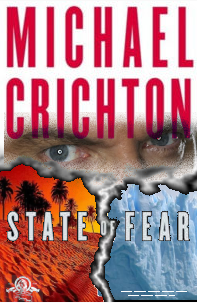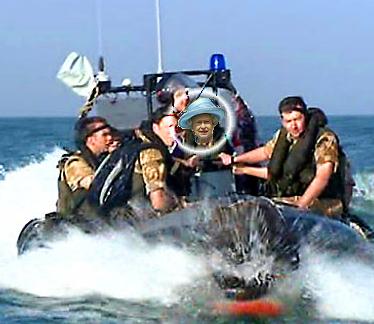I plan to attend a forum this weekend at The University of North Carolina. The
Security and Liberty Forum is hosted by the ACLU and the UNC Computer Science Department. It is sponsored by various departments on the university and the speaker list includes politicians, second-tier management of government agencies (homeland security, etc.) and various "experts."
If you click the link above to visit the page announcing the forum you will find a a portrait of Ben Franklin at the top with one of his most famous quotes.
 "Those who would give up essential liberty to purchase a little temporary safety deserve neither liberty nor safety." [Pennsylvania Assembly: Reply to the Governor, November 11, 1755.—The Papers of Benjamin Franklin, ed. Leonard W. Labaree, vol. 6, p. 242 (1963).]
"Those who would give up essential liberty to purchase a little temporary safety deserve neither liberty nor safety." [Pennsylvania Assembly: Reply to the Governor, November 11, 1755.—The Papers of Benjamin Franklin, ed. Leonard W. Labaree, vol. 6, p. 242 (1963).]What struck me about the description of the forum is that, if you discount the title of the forum, the Franklin quote and the word "Liberty" in the name of organizations participating (ALCU etc.), the agenda scarcely features any discussion of "Liberty" as such. The topics of discussion all concern themselves with "Privacy" instead.
This set me to wondering if the linkage between privacy and liberty is
really so strong that the learned panelists don't see the need to show the linkage, or is the Liberty/Privacy thing a bit of stage magic where we are not supposed to notice that the swap has been made? If you look up the word "liberty" its primary definitions all boil down to a state of being able to do pretty much what you want, within the limits of your abilities, without arbitrary restraint imposed by other people. It is not immediately clear how being watched while doing whatever it is you have decided to do will, in and of itself, impair your ability to do it.
This is not to say that, as a practical matter, there are no tensions between liberty and the coming surveillance state. In his excellent article for Reason Magazine,
The Pinpoint Search, Julian Sanchez looks at these tensions. Here is a telling passage in which he talks about how our excessively regulated society makes petty criminals of us all:
In a nation whose reams of regulations make almost everyone guilty of some violation at some point, Americans have grown accustomed to getting away with minor transgressions: the occasional joint or downloaded movie or high-speed dash to the airport. For at least some crimes, though, the expectation that our peccadilloes will slip through the cracks may soon be outdated. The new style of noninvasive but deeply revealing detection—call them “pinpoint searches”—will require rapid adjustments in both legal rules and social mores.
Sanchez opens with a story of a man who was stopped for a traffic violation and subsequently arrested when a drug-sniffing dog became interested in the almost 300 lbs of marijuana in his trunk. He subsequently claimed, unsuccessfully, that letting the dog sniff his car was an illegal search without reasonable cause. I must confess to being a bit put off that Sanchez had started out that way since his choice of example sets one tone for the mostly-libertarian readership of Reason, but quite another tone for the general public. But reading on a bit I found the article far more balanced and better reasoned than I had feared based on how it started. In particular, he gave fair play to the idea that the problem can be addressed by changing the regulatory environment rather than by criminalizing information gathering.
In point of fact we
do all have a rational interest in having the government collect information about bad people who mean to do us harm. And, since bad people do not identify themselves as such ahead of time, the only way to get that information is to gather information about everybody and use the information so gathered to sort them out. Admittedly, there will be times when limited information will draw suspicion to innocent people but the solution to that problem is usually
more information. A case in point would be a family friend named Bob who got into the sport of shooting trap and skeet. To save money he reloaded his own shotgun shells and in the process he bought hundreds of pounds of black powder over the course of a year. The FBI was curious about this and they visited Bob and some of his neighbors to ask about it. Bob is a nice guy and I am sure that he and the FBI agents had a nice visit. I am also sure that Bob's name went onto a list somewhere and that if any of the local landmarks had been blown up using black powder Bob could have looked forward to another visit.
I guess this makes me an odd sort of a libertarian. I just can't muster to requisite paranoia about the authorities who, for the most part, just seem like ordinary schlubs trying to do a job. I don't like to drive by a cop with a radar gun but I do understand that this is the price I pay for the satisfaction I get when I see that the cop has pulled over that BMW that sat two inches from my rear bumper flashing his lights and blowing his horn while I was trying to pass a truck. I think the law should try to stay out of the way of ordinary people doing ordinary things -- the 55 mile per hour speed limit was an abomination that did more to undermine the respect for the rule of law in this country than anything else I can easily think of -- but it is silly to have the laws but to deny the government the information needed to enforce them.
It should be remembered that most people aren't particularly libertarian. The capital-L Libertarians like to think most people agree; they have a questionnaire that shows that most people will agree with libertarian
principles as long as they are stated abstractly, but if you start showing people a list of laws that are repugnant to libertarians they will also tend to support the laws. Still, for some reason the notion that privacy and liberty are somehow strongly linked seems to have considerable appeal. My theory is that people know they are supposed to like freedom and they know they don't like to be watched in their private lives so they find it convenient to think of the one as a rationale for the other. It's a bit like having an itch in a body part your mom told you you mustn't touch in public. As long as you think someone is watching you you are not
at liberty to scratch it.




